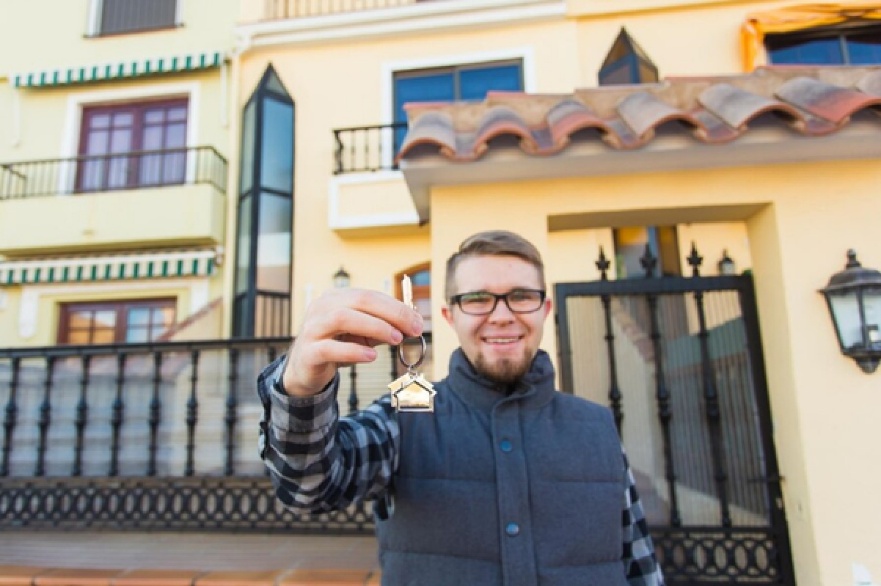Portugal has become one of the most sought-after destinations for property investment, and it’s not hard to see why. With its stunning landscapes, rich culture, and favorable climate, it’s a dream come true for investors, retirees, and travel enthusiasts alike. But how do you navigate the process of buying property in Portugal? Whether you’re looking for a holiday home, a retirement haven, or a smart investment opportunity, this guide will walk you through everything you need to know.
Why Should You Consider Investing in Portugal?

Portugal is more than just a beautiful country; it’s a goldmine for property investors. The Portuguese real estate market has been booming, offering a unique blend of affordability, high returns, and lifestyle benefits. But what makes Portugal stand out?
For starters, the country offers a Golden Visa program, which grants residency to non-EU citizens who invest in property worth €500,000 or more. This is a huge draw for investors looking to gain access to the Schengen Area. Additionally, Portugal’s low cost of living, compared to other Western European countries, makes it an attractive option for retirees and expats.
The country’s diverse regions—from the bustling streets of Lisbon to the serene beaches of the Algarve—offer something for everyone. Whether you’re looking for a vibrant city life or a tranquil countryside retreat, Portugal has it all. And let’s not forget the tax benefits! Portugal’s Non-Habitual Resident (NHR) program offers significant tax advantages for new residents, making it a financially savvy choice.
A Step-by-Step Guide to Purchasing Property in Portugal
Buying property in Portugal might seem daunting, but it’s a straightforward process if you know the steps. Here’s a breakdown to help you navigate the journey:
- Define Your Goals and Budget: Are you buying for investment, retirement, or as a holiday home? Knowing your purpose will help you narrow down your options.
- Choose the Right Location: Portugal offers a variety of regions, each with its own charm. Lisbon and Porto are perfect for urban living, while the Algarve is ideal for beach lovers.
- Hire a Reliable Real Estate Agent: A local agent can provide invaluable insights and help you find properties that match your criteria.
- Make an Offer and Negotiate: Once you’ve found your dream property, it’s time to make an offer. Don’t be afraid to negotiate—it’s common practice in Portugal.
- Sign the Promissory Contract: This legally binding document secures the property for you and outlines the terms of the sale.
- Conduct Due Diligence: Ensure the property has no legal issues or outstanding debts. A lawyer can help you with this step.
- Finalize the Sale at the Notary: The final deed of sale, known as the Escritura Pública, is signed in the presence of a notary.
- Register the Property: Once the sale is complete, the property must be registered in your name at the Land Registry Office.
By following these steps, you’ll be well on your way to owning a piece of Portugal’s paradise.
Understanding the Costs and Taxes of Buying Property in Portugal
While Portugal offers relatively affordable property prices compared to other European countries, it’s essential to factor in the additional costs and taxes. Here’s a breakdown:

- Property Transfer Tax (IMT): This tax ranges from 1% to 8%, depending on the property’s value and its intended use (primary residence or investment).
- Stamp Duty: A flat rate of 0.8% is applied to the property’s purchase price.
- Notary and Registration Fees: These typically cost between 1% and 2% of the property’s value.
- Ongoing Property Taxes (IMI): Similar to council tax, this annual tax ranges from 0.3% to 0.8% of the property’s taxable value.
Don’t forget to budget for legal fees, real estate agent commissions, and potential renovation costs. While these expenses can add up, they’re a small price to pay for owning a property in one of Europe’s most desirable locations.
Risks and Challenges You Should Be Aware Of
Like any investment, buying property in Portugal comes with its own set of risks and challenges. One of the most common pitfalls is not conducting proper due diligence. Always verify the property’s legal status and ensure there are no hidden debts or disputes.
Another challenge is navigating the language barrier. While many Portuguese speak English, legal documents are often in Portuguese. Hiring a bilingual lawyer can save you from misunderstandings and costly mistakes.
Lastly, be cautious of overpaying for properties. The real estate market in Portugal is competitive, and some sellers may inflate prices for foreign buyers. Working with a reputable agent can help you avoid this issue.
FAQs About Buying Property in Portugal
1. Can foreigners buy property in Portugal?
Yes, Portugal has no restrictions on foreign property ownership. In fact, the government encourages foreign investment through programs like the Golden Visa.
2. Do I need to live in Portugal to buy property?
No, you don’t need to be a resident to purchase property. Many buyers invest in Portuguese real estate as a second home or for rental income.
3. What is the average cost of property in Portugal?
Property prices vary by region. In Lisbon, you can expect to pay around €4,000–€6,000 per square meter, while rural areas offer more affordable options starting at €1,000 per square meter.
Final Thoughts
Buying property in Portugal is more than just a financial investment—it’s an investment in your lifestyle. With its stunning landscapes, welcoming culture, and favorable tax policies, Portugal offers a unique opportunity to own a piece of paradise. By understanding the process, costs, and potential challenges, you can make an informed decision and turn your dream into reality.
So, are you ready to take the plunge and explore the Portuguese real estate market? The journey might just be the best decision you ever make.









